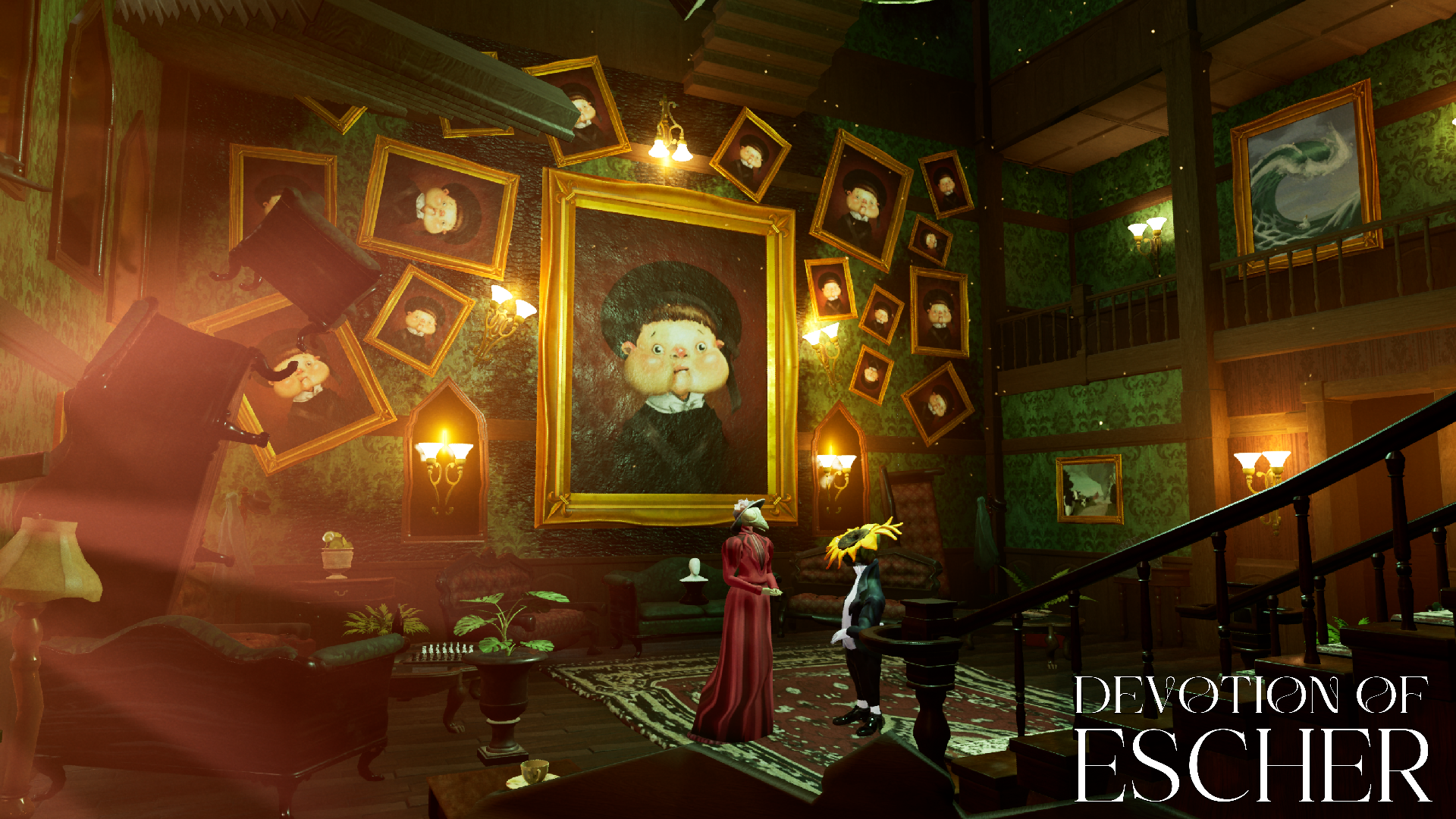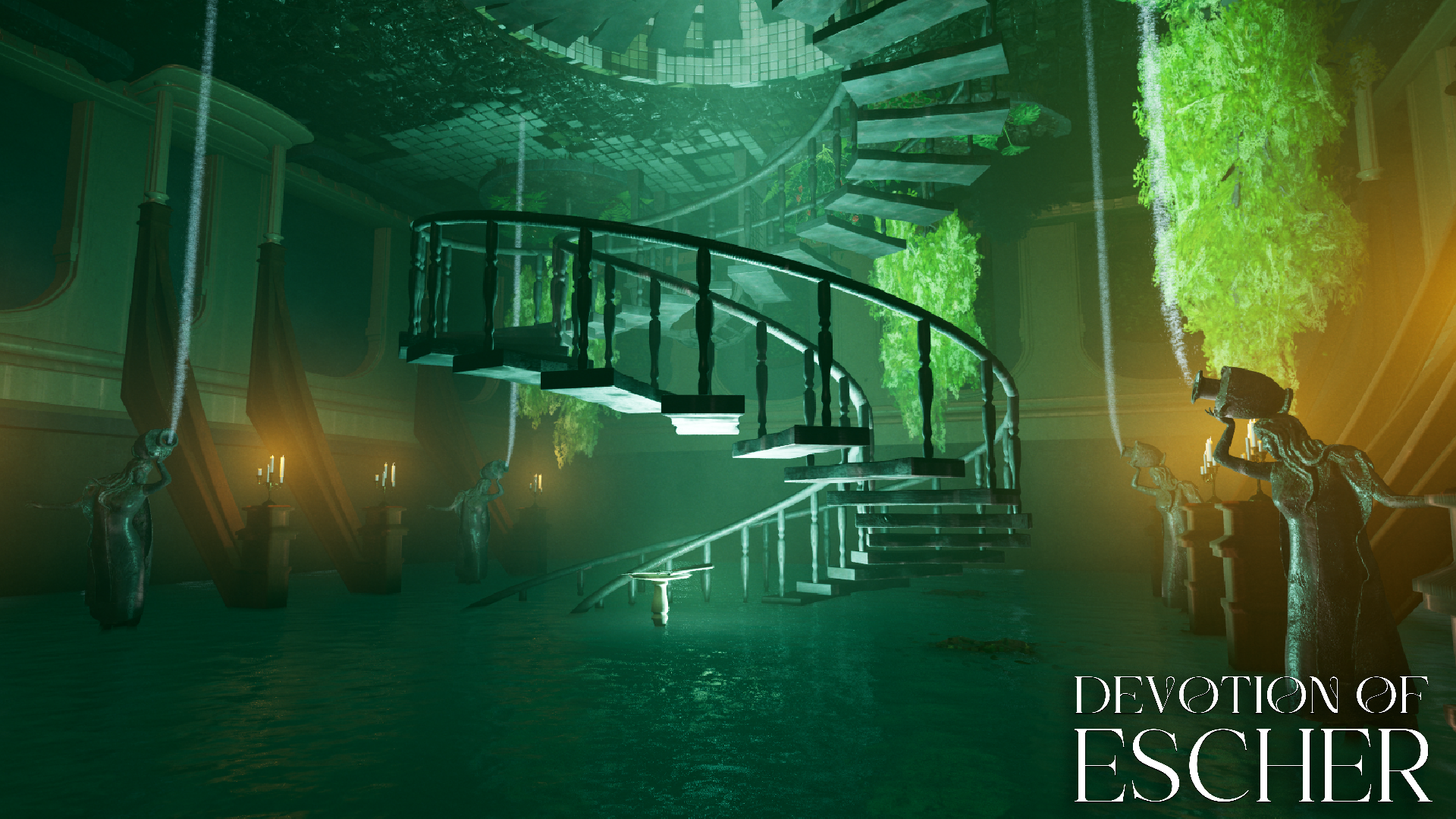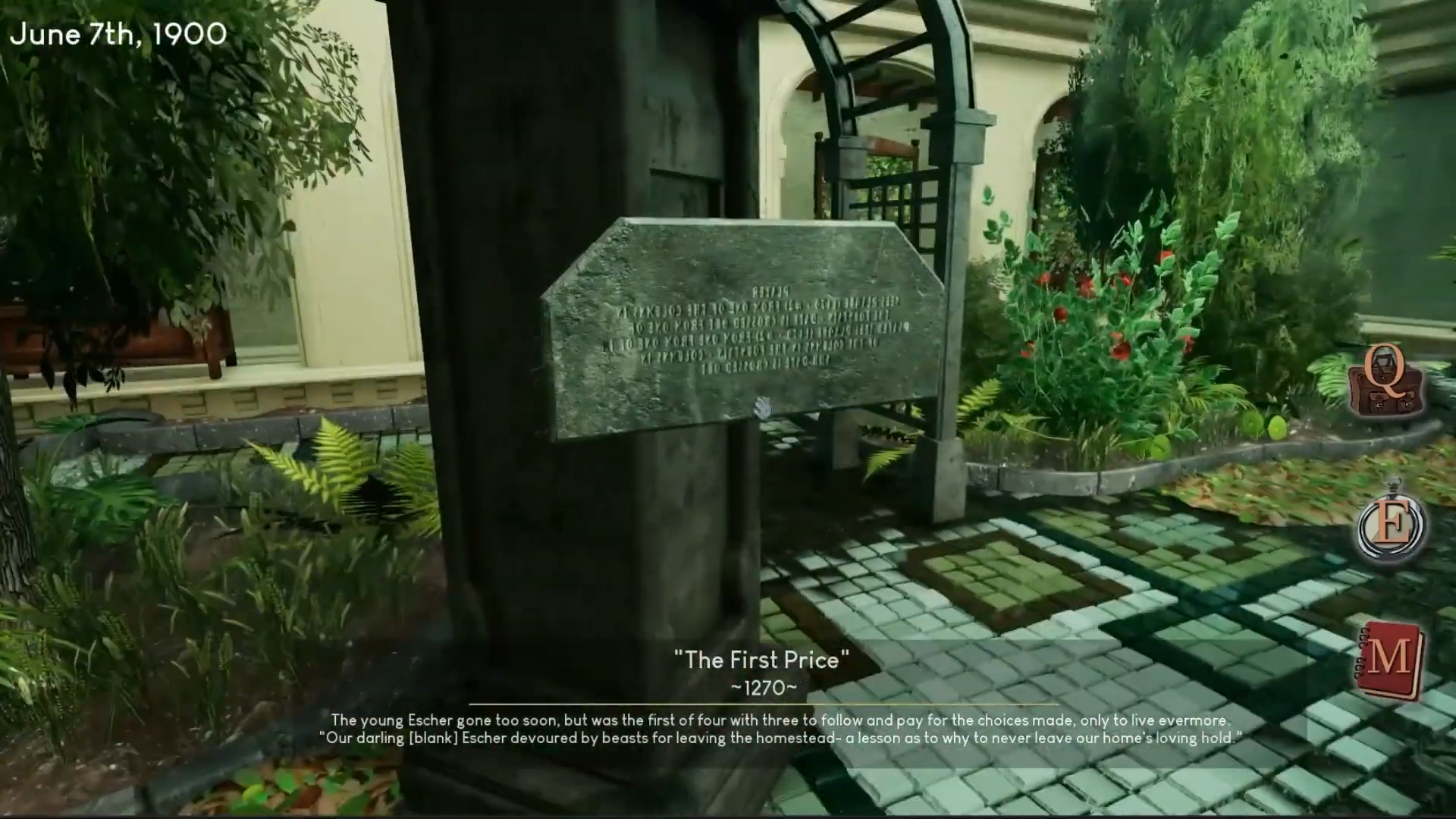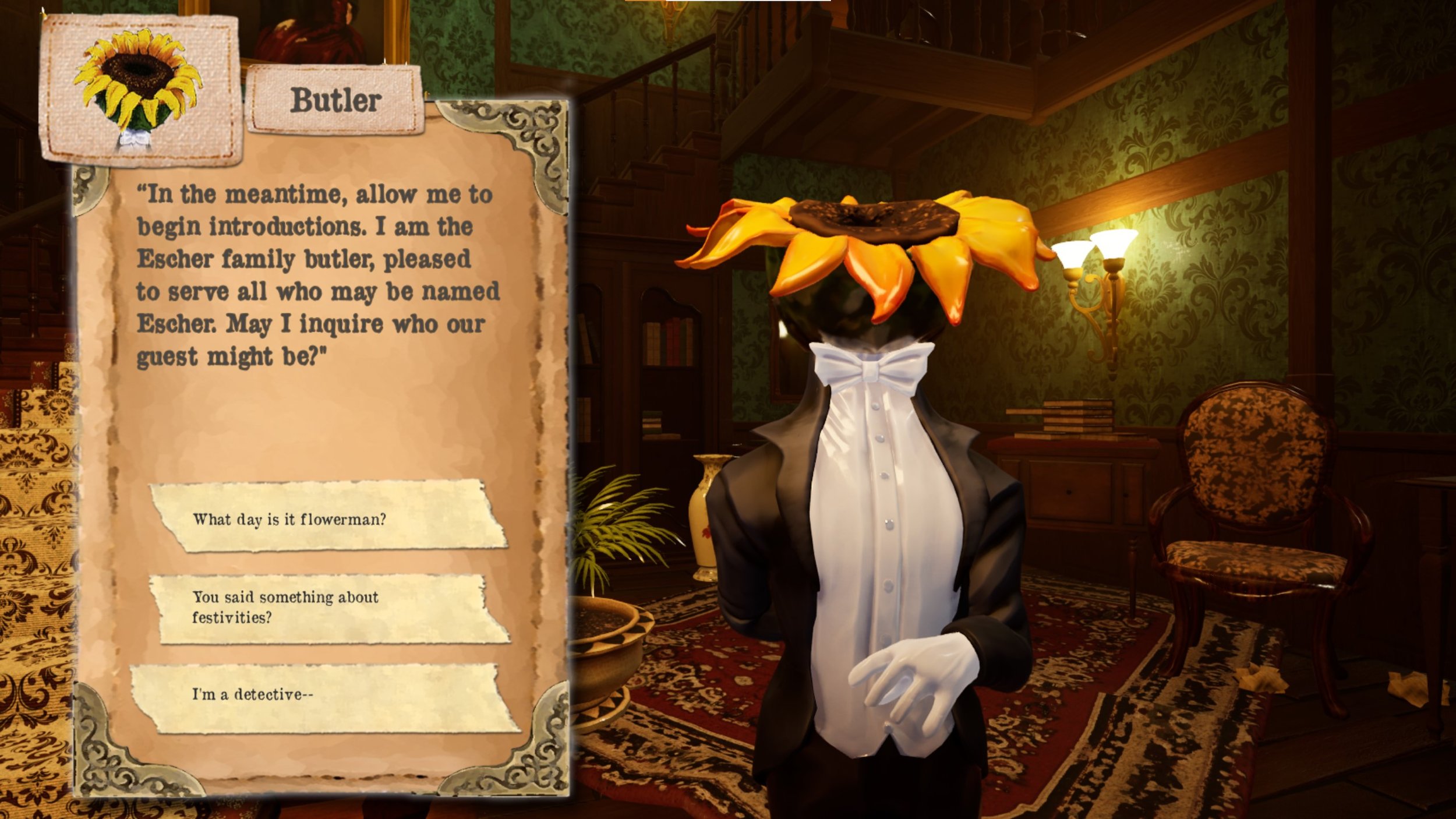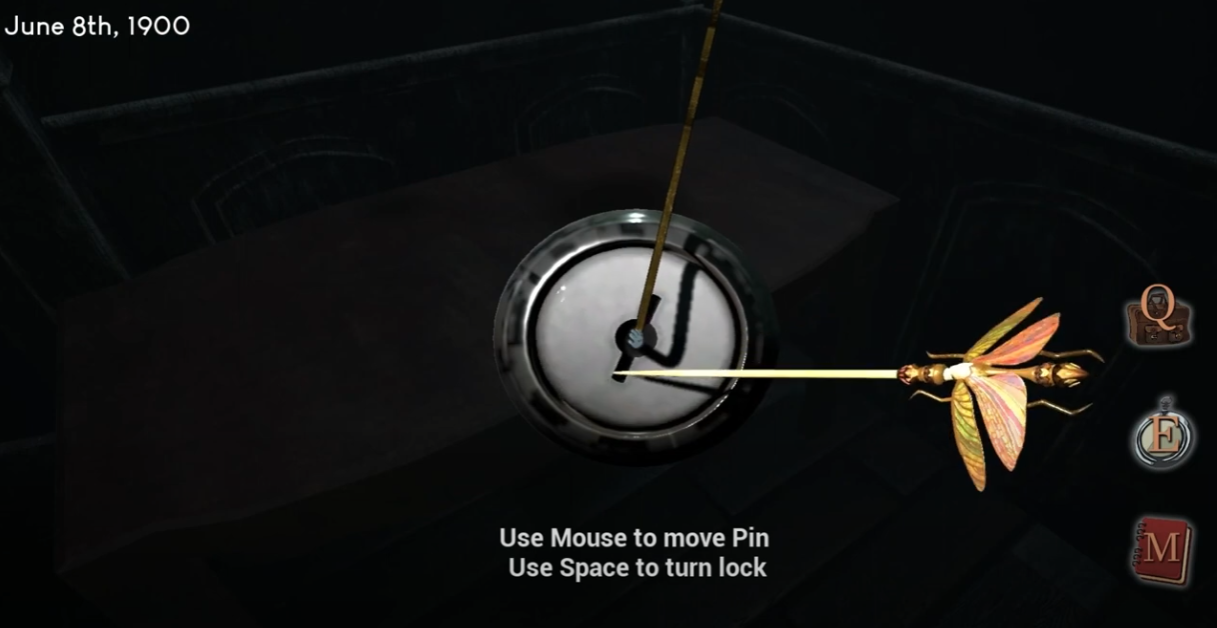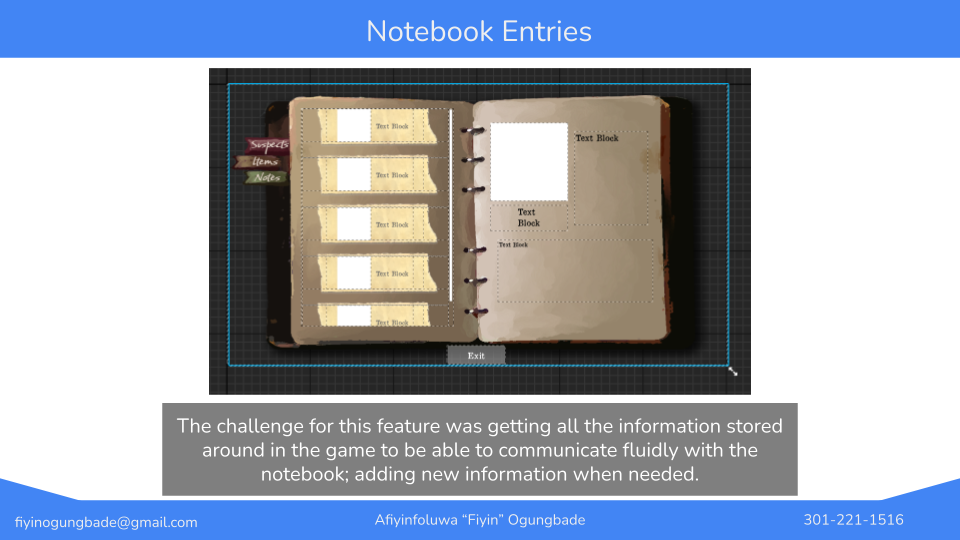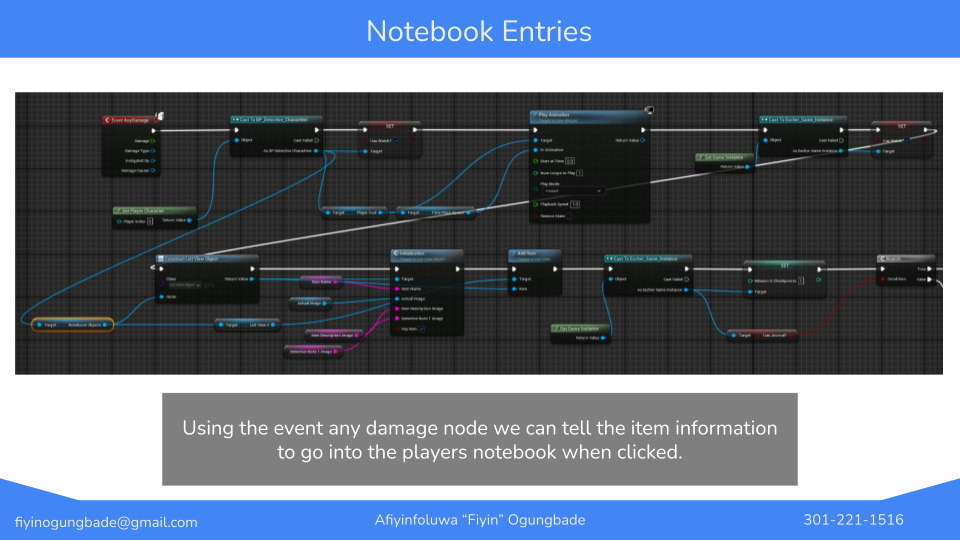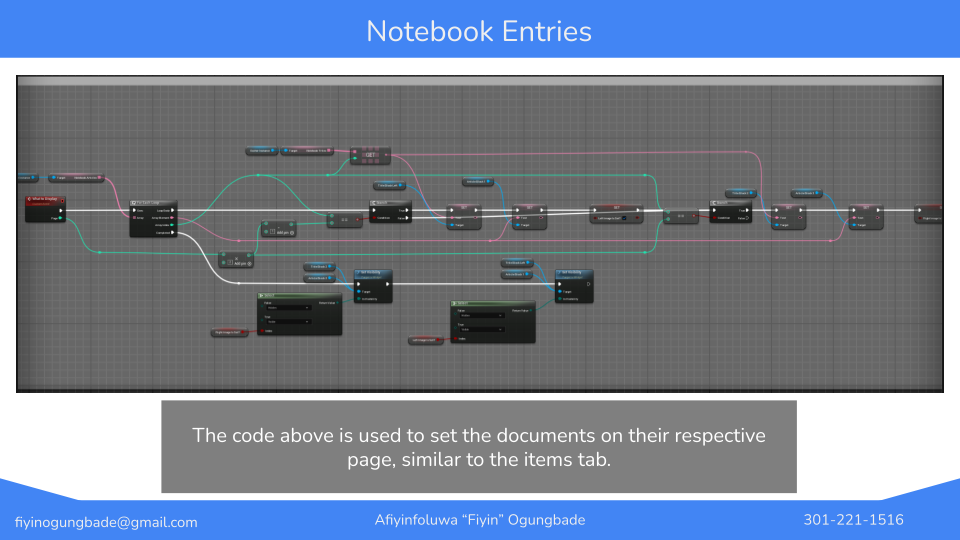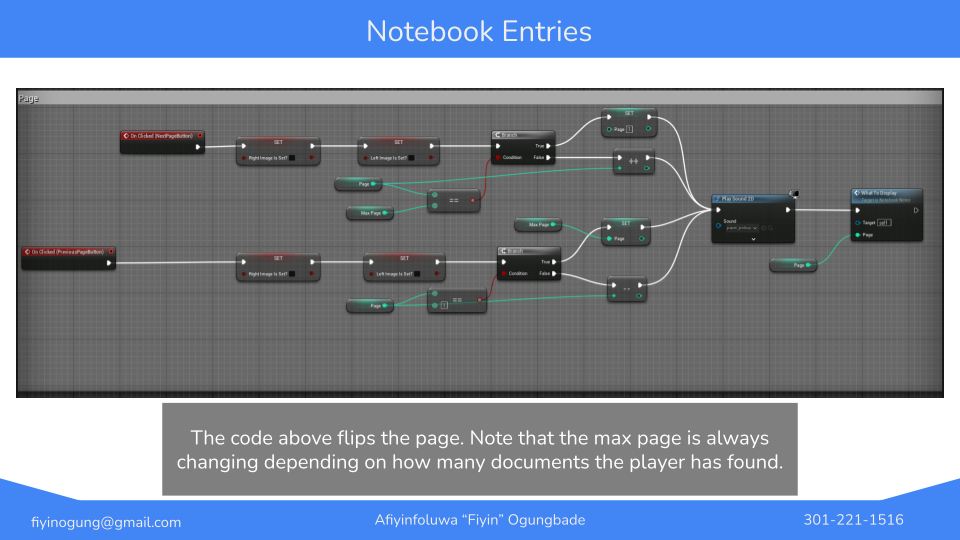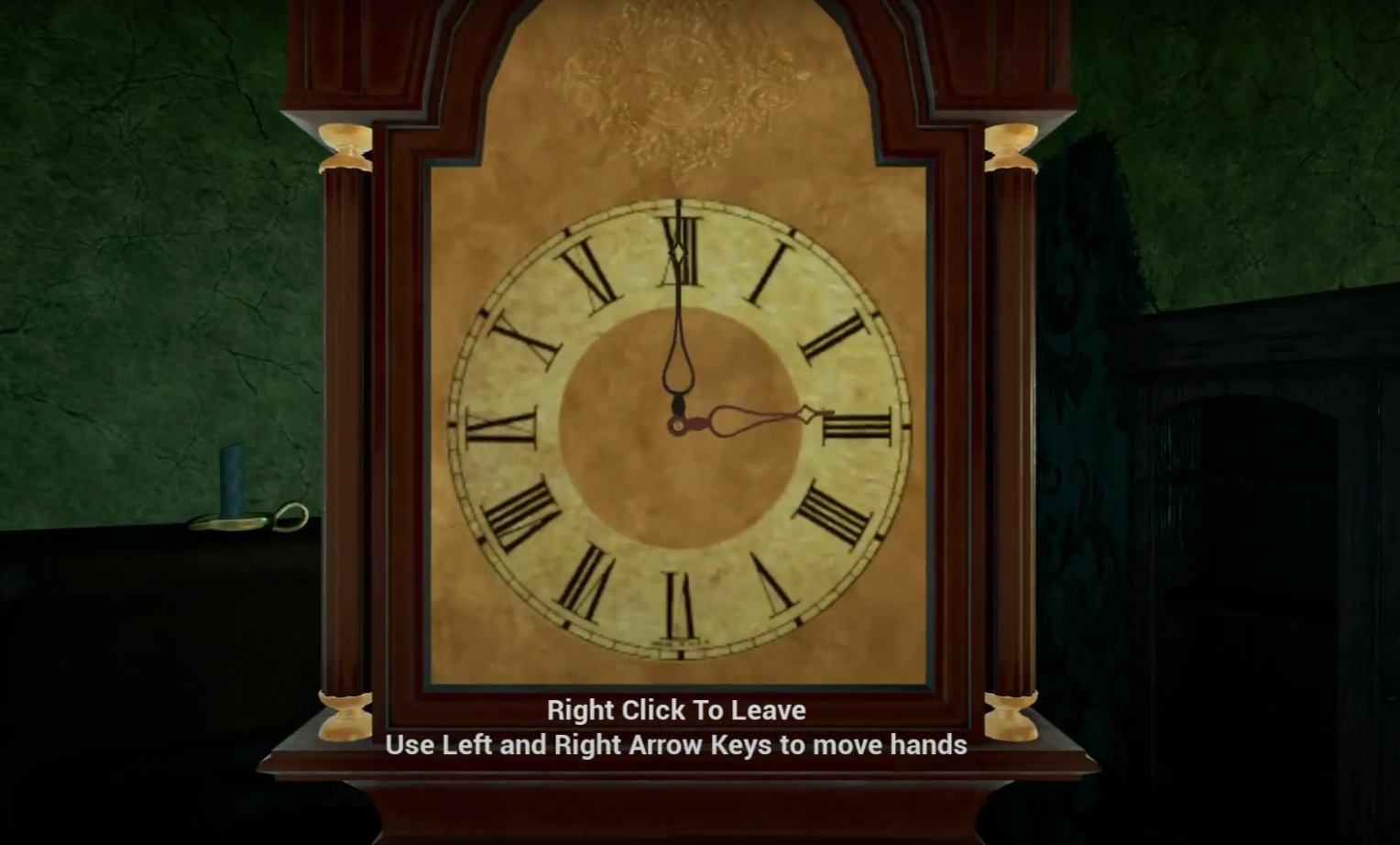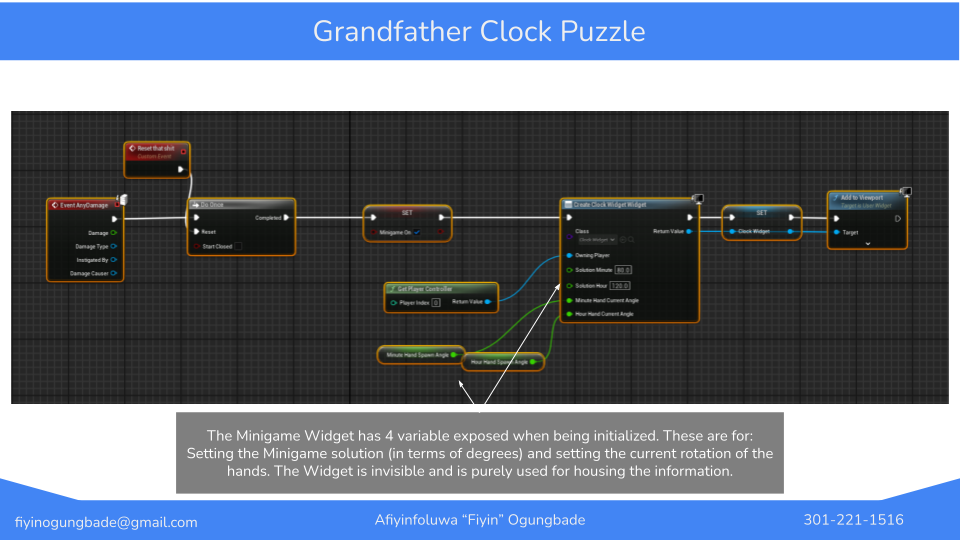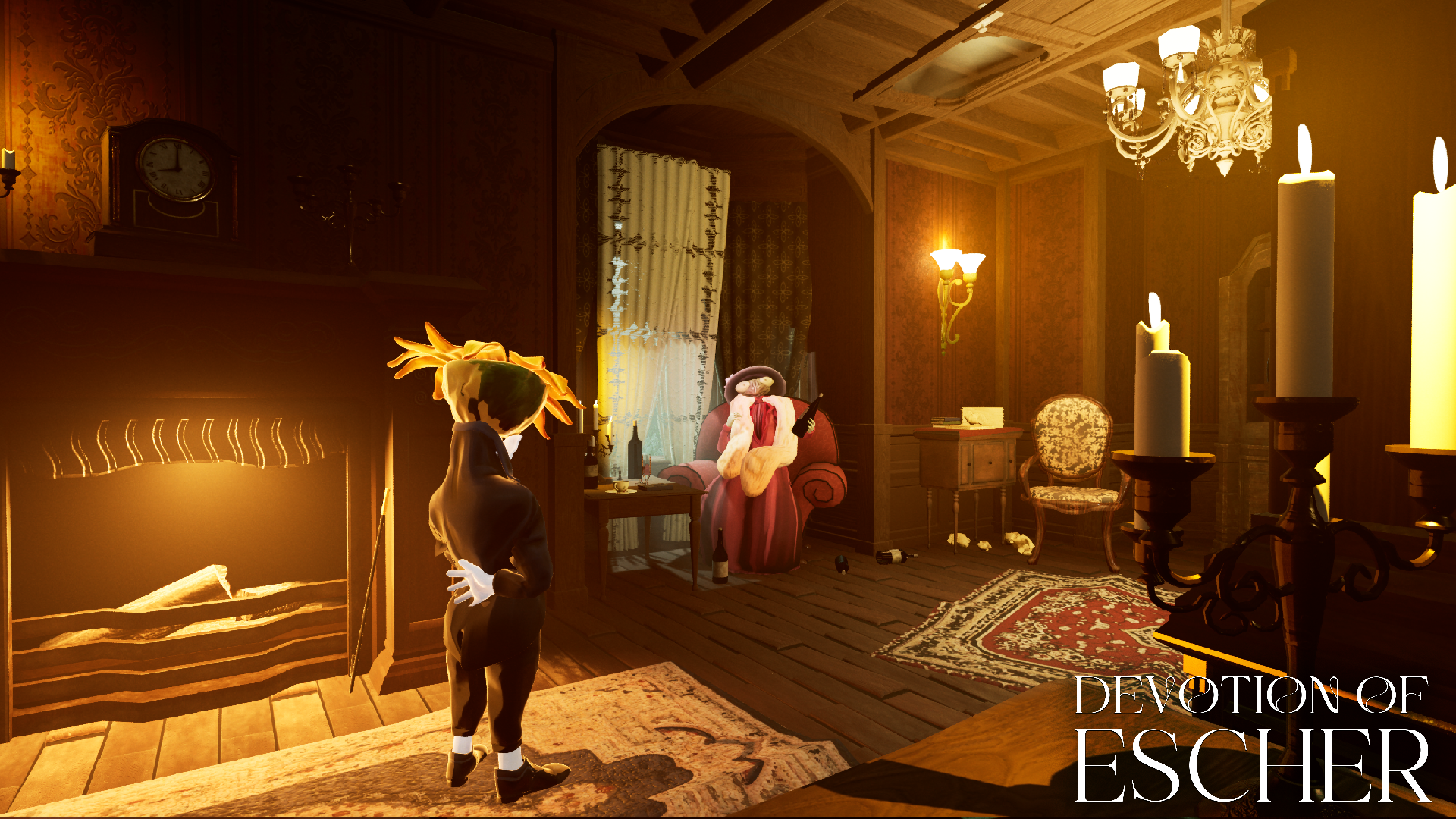
Devotion of
Escher
Summary
Devotion of Escher is a single player mystery game set in the 1900’s with a strong focus on narrative. Use a mysterious time traveling watch to meet the Eschers and participating in their annual festival. Solve puzzles, collect clues, and navigate the house to get to the bottom of the mystery.
Platform(s): PC
Players: Single Player
Work Period: 8 Months
Role(s): Lead Game Designer, Lead Programmer (Blueprint Scripting)
Tools used for role(s): Unreal Engine 5, Excel, Perforce, Jira
Role Responsibilities
Lead Game Designer
Designed the notebook, the key resource in the players arsenal, allowing them to keep track of information and to help fulfill the player fantasy of being a time traveling
Worked with the level designer to ensure a smooth flow for gameplay
Oversaw and advised the design process of all puzzles within the game
Worked with play testers to ensure that the game had a good sense of mystery and adventure and implemented the feedback that was received
Lead Game Programmer
Created the systems needed for the notebook allowing for information to be handled and stored
Created the core object system allowing text, images, and other data to be stored within them and tied that system to the notebook
Created the time travel system allowing the player to travel to different days to find clues and progress through the story
Created and implemented the notification system for new quest objectives and notebook entries
Oversaw and advised the implementation process of all puzzles within the game
Handled animations, VFXs, and dialogue trees
The Notebook
Every great detective takes notes on their surroundings, suspects, and evidence when solving a case. In order to help push that game play feel, I approached this challenge with the goal of providing a tool that makes the player feel like they’re the ones gathering the information and learning about them rather than just being told what to do.
Design Objectives:
Create a storage system that could hold information on the various objects, characters, and documents that the player could find
Make sure that the notebook feels like it is a tool to the players disposal and not something that tells them where to go
Technical Breakdown
The Grandfather Clock Minigame
In the final act of the game the player must set the clock to the correct time in order to escape a room. I had the challenge of creating this minigame both mechanically and visually. I approached it with the process of creating an invisible widget that would store the minigame information, then send that information to the clock, unlockable door, and crushing ceiling.
Tech Objectives:
Create a integration friendly system for adjusting the hands of the clock
Have the actual effects of the minigame be seen in the grandfather clock (the turning of the hands)
Technical Breakdown
Game Loops and Flow Charts
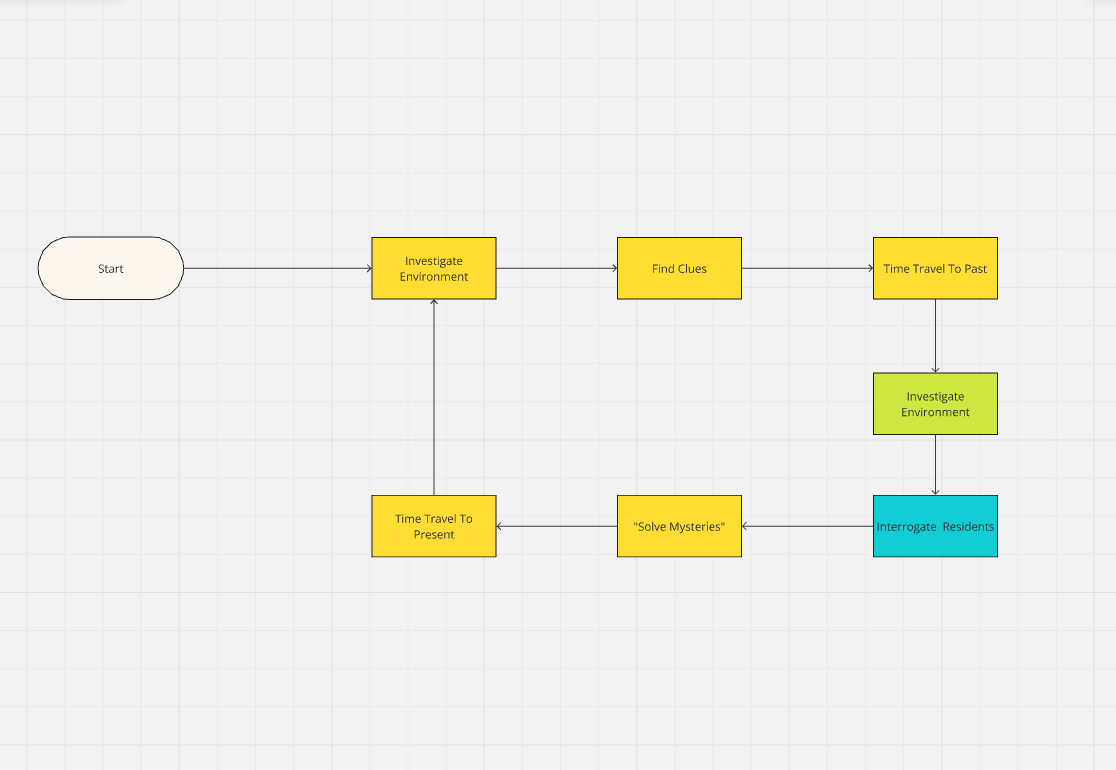
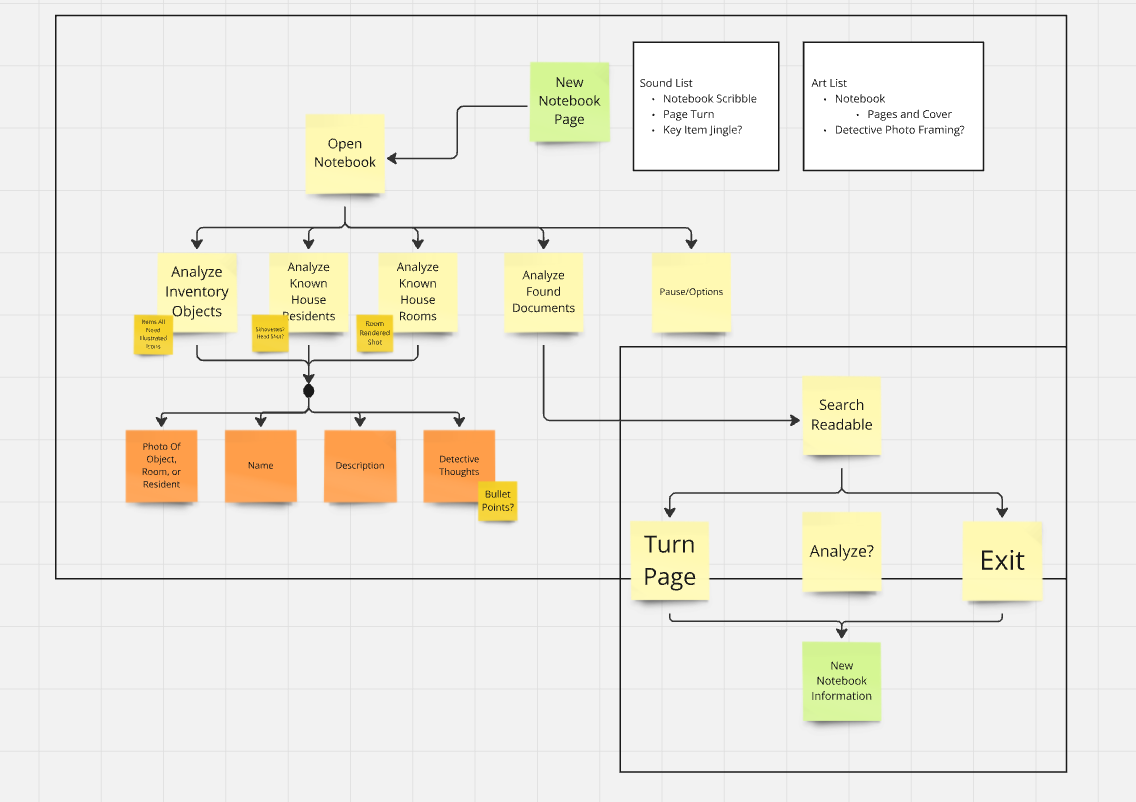
Game Screenshots

